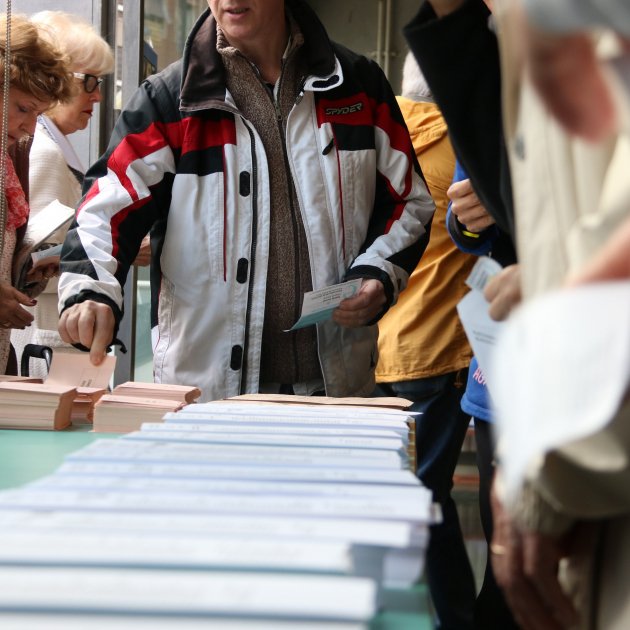It will not be official until this Friday, but the postponement of the Catalan parliamentary elections scheduled for February 14th is increasingly taken for granted at the government's Palau de la Generalitat. Sources close to the executive consulted by ElNacional.cat warn that as the pandemic is not easing, going ahead "could be truly chaotic". That is why they say that "in this current context it would be difficult to hold the vote, especially seeing the recent examples of the Basque Country and Galicia" - in which, during last spring's first wave, both communities postponed their elections. This Thursday, Catalan health secretary general Marc Ramentol has sent all the Catalan political parties a new report, to which this newspaper has had access, on the epidemiological picture that it predicts in a month's time, when the elections are scheduled. And the projection is still bleak. Catalonia will be "on the crest of the wave," it says.
According to sources present at the meeting, Ramentol stated that the predictions do exclude the possibility that even tougher measures might be imposed than the current ones, which today have been extended for another week. Moreover, CatSalut considers the scenario of an acceleration, so that the health care situation could become like the first wave.
The worst case scenario: up to 9,000 infections a day
As in the previous projection shared with politicians on Monday, the health department describes two scenarios, with between 3,000 and 4,000 new Covid cases daily on 14th February, with the peak of contagion at the start of next month as the election campaign begins, and ICU pressure getting to its highest levels just before voting day. Contrasting with Monday's forecast, however, this report incorporates a third hypothesis based on a situation in which the restrictions adopted so far have no effect. In this scenario, on February 14th there would be up to 1,200 ICU beds occupied by Covid patients and 9,000 new infections per day. Nevertheless, the ministry says that this possibility is highly unlikely.
In the two most plausible scenarios, which are less pessimistic, the peak of ICU care pressure is expected to occur between February 3rd with 670 patients and February 7th with 770. And the highest point of contagion would be on January 19th, with between 4,500 and 6,000 daily.
Today's Catalan health department report: 'Evolution of the Epidemiological Situation: Scenarios for the Electoral Period."
A legal vacuum
The position of the Catalan coalition government partners - ERC and JxCat - is not set in stone, nor is the opinion of the lawyers. This is partly because the electoral law is not prepared for a scenario like the current one. The government legal services are working on a legal report that assesses the legality of the postponement.
JxCat expresses its doubts about whether an electoral postponement could be legally carried out. When the Basques and Galicians put off their votes, Spain was in a state of alarm, with a strict stay-at-home lockdown that was clearly the main basis for suspending the elections. The elections had been scheduled for April 5th and on March 16th the decision was taken postpone them for later.
In Catalonia, the document prepared by the electoral processes area, under the ERC-governed foreign affairs department, stipulates that the elections can only be suspended in case of strict lockdown or exceptional restrictions on social activity. And this second point is open to interpretation. Among the arguments of those opposed to the postponement is the paradox that it would create a situation where people could continue going to work and go shopping, but could not go to the polls.
PSC, against; JxCat, dubious
The party which is most openly opposed to the postponement of the elections till a new likely date in May is precisely that to be led into the campaign by the current Spanish health minister. The Catalan Socialists (PSC), with Salvador Illa at the helm, see no reason to postpone the vote. Far-right Vox shares their view.
Carles Puigdemont's party JxCat has called for an explicit positioning on the issue from the Catalan ministries of health and foreign affairs, both in the hands of ERC, which hold most of the responsibility in the decision. JxCat candidate Laura Borràs is reticent about the postponement of the election. She notes that Portugal, which has stricter confinement measures than Catalonia, is to hold elections on 24th January.
Main image: Voters holding ballot papers / ACN
